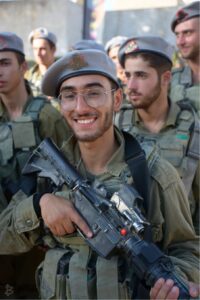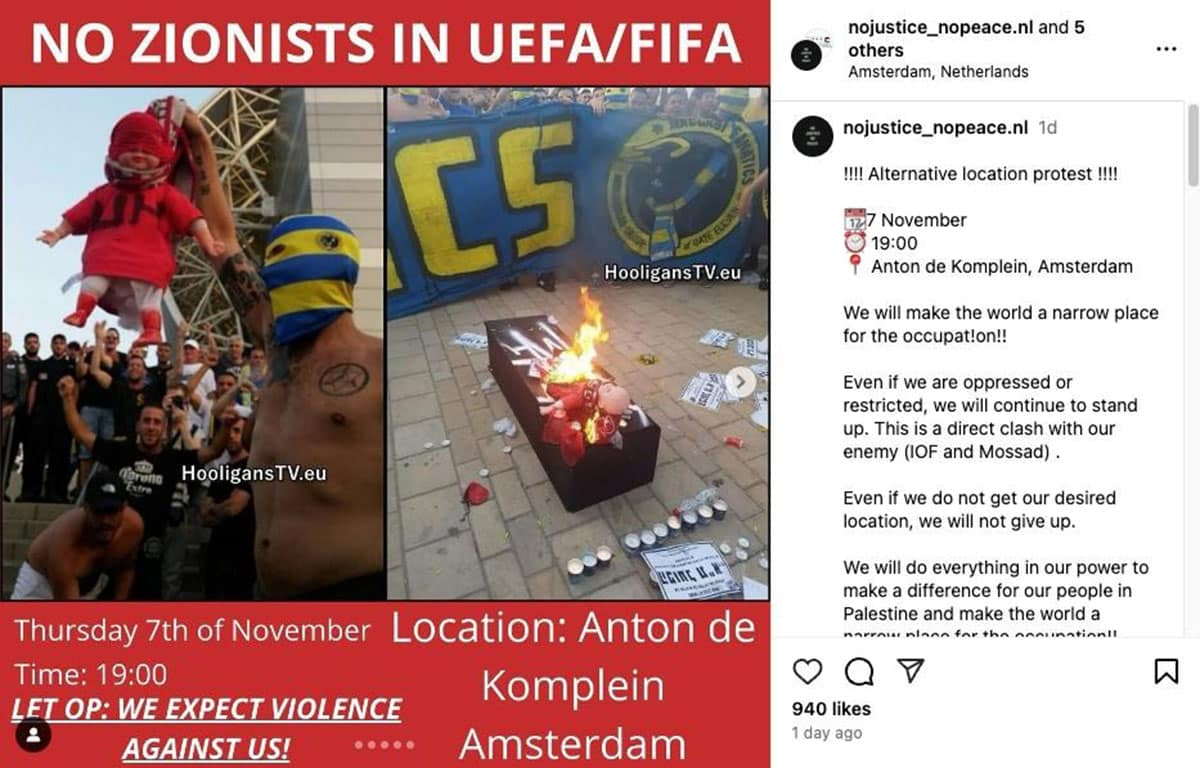
Overview
- An estimated 60,000 civilians have been evacuated to southern/central Gaza, with only a few thousand reportedly remaining in northern Gaza, allowing the IDF to more effectively target Hamas terrorists without harming civilians.
- Israel’s Coordinator of Government Activities in the Territories (COGAT) facilitated the transfer of humanitarian aid into northern Gaza. A World Health Organization convoy reached hospitals in Jabaliya and Beit Lahia. However, terrorists detonated an explosive nearby, which injured six children from the shrapnel.
- Since the ground operation began in Lebanon on October 1, the IDF estimates that it has eliminated 2,000 Hezbollah militants, totaling over 3,000 since October 7, 2023.
- Airstrikes targeted Hezbollah positions in the Bekaa Valley, including Baalbek and two border crossings with Syria, to hinder Unit 4400’s weapon smuggling activities.
- Prime Minister Netanyahu dismissed Defense Minister Gallant, citing lack of trust and disagreement on multiple issues. The dismissal followed Gallant’s approval of conscription orders for 7,000 ultra-Orthodox men and his opposition to the draft evasion law.
- After a football/soccer match between Maccabi Tel Aviv and a Dutch team in Amsterdam, Israeli fans were attacked by hundreds of Arab and Muslim supporters of the Palestinian cause
International
- Following his election, President Donald Trump plans to significantly increase sanctions on Iran, aiming to cripple its oil sales. This strategy is intended to reduce Iran’s financial support for its allies and nuclear program, according to sources cited in the Wall Street Journal.
- The Spanish Foreign Ministry announced that the cargo ships “Maersk Denver” and “Maersk Saltar,” departing from New York, will not be allowed to dock at Spanish ports. This decision follows a request by Member of Parliament Enrique Santiago to prevent their arrival, arguing it would violate Spanish penal law because they carry weapons en route to Israel. Hamas congratulated Spain for preventing the ships from docking in the country’s ports and issued a statement: “We appreciate Spain’s prevention of the docking of two ships carrying weapons for the Zionist entity, and we call on the United Nations to issue a resolution prohibiting the export of weapons for occupation.
Amsterdam Attack on Israeli Football Fans
After a soccer match between Maccabi Tel Aviv and Ajax (also known as the “Jewish” team) in Amsterdam, Israeli fans were attacked by hundreds of Arab and Muslim supporters of the Palestinian cause. The attacks appeared premeditated as Israeli intelligence agencies uncovered a network of operatives who planned the attack on Telegram groups. Ajax still did not condemn the attacks.
Between 10-20 Israelis were injured, some critically. 63 were arrested but most were released without charges.
The Dutch authorities were notified of the risks ahead of time by Israeli security services but failed to protect the fans which caused a political uproar in the Netherlands with the Prime Minister, the King and other political figures decrying the antiemetic pogrom-like violence, unseen in this scale in the Netherlands since the Holocaust.
El Al sent planes free of charge to airlift 2000 Israelis from Amsterdam while a travel warning was issued for the country. The new Foreign Minister, Gideon Saar, flew to Amsterdam to deal with the situation as his first overseas mission as Israel’s top diplomat.
Some analysts suggested that Hamas’s cells in the Netherlands were instrumental in coordinating the attack and Hamas official, Sami Abu Zuhri, commented : “The continuation of the genocide in Gaza will lead to more “spontaneous incidents” like what happened in Amsterdam.” This is a call to Hamas supporters around the world to act more against Jews and Israelis around the world, as part of efforts to ‘globalize the Intifada’.
Gaza Strip
Diplomatic
- Talks in Cairo between Hamas and Fatah are ongoing, with Fatah demanding that any unity government in Gaza should place civilian, police and financial management under the Palestinian Authority’s control. Such a deal could lead to armed conflict between the factions if implemented. Hamas officials met in Moscow with Russian Foreign Minister Sergey Lavrov, seeking to put pressure on Fatah to accept a national unity government. Hamas aims to retain a role in governing Gaza when the war ends.
- Qatar has reportedly demanded that Hamas officials residing in the country leave, following the group’s rejection of a ceasefire deal with Israel. Qatar also announced a pause in its mediation efforts for a Gaza ceasefire, citing a lack of progress between Israel and Hamas. This happened after the US request to remove Hamas members from the country.
- Senior Hamas official, Bassam Naim, has called for an end to the war in Gaza in the wake of Trump’s victory.
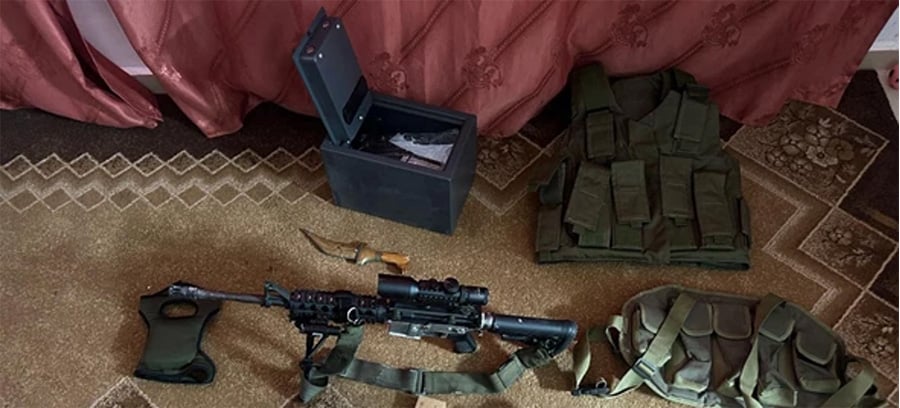
Operational
- The IDF (in Arabic) ordered residents of the North Beach neighborhood, Al-Nasr, and several other areas in the Shati region to evacuate southwards due to rocket fire originating from these neighborhoods. IDF forces are targeting resistance pockets in northern areas, especially Beit Lahia.
- Division 162 expanded its operations to the coastal line of Beit Lahia, evacuating remaining civilians and eliminating pockets of resistance. Division 162 completed a significant operation, isolating the northern areas of Gaza, including Beit Lahia, Beit Hanoun, Al-Tatra, and most of Jabaliya, from Gaza City. Satellite images show a continuous division line from Mefalsim to the sea, similar to the line from the Beeri Forest to the sea.
- An estimated 60,000 civilians have been evacuated to southern/central Gaza, with only a few thousand reportedly remaining in the north, allowing the IDF to effectively target Hamas terrorists without harming civilians.
- Israel’s Coordinator of Government Activities in the Territories (COGAT) facilitated the transfer of humanitarian aid into northern Gaza. A World Health Organization convoy reached hospitals in Jabaliya and Beit Lahia. However, terrorists detonated an explosive nearby, which injured six children from the shrapnel.
- The IDF has encircled northern Gaza enabling it to isolate the terrorists, however they likely have enough supplies to survive for another month. They have also adapted their tactics by using mortars as improvised explosive devices. The operations in northern Gaza may still require several more months before Hamas is completely defeated.
- After four months, Division 252 withdrew from the Nezarim Corridor in Gaza, having eliminated hundreds of militants and destroyed 10 kilometers of tunnel networks. Division 99, which had previously been assigned to operations in Lebanon, have relieved them and have now been deployed to central Gaza.
- There were reports of 12 casualties resulting from an airstrike of an alleged Hamas command-and-control center that operated out of an UNRWA school in Shati.
- The 99th Division replaced the 252nd Division in the Gaza combat zone, engaging in firefights in the central Gaza camps of Nuseirat and Marazi.
- The Southern Gaza Brigade conducted a focused operation led by the Bedouin reconnaissance unit, engineering teams, and other IDF units. The operation included aerial attacks on operational shafts, anti-tank positions, booby-trapped buildings, and observation posts, eliminating terrorists and tunnel infrastructure.
- Protests over the high cost of living have erupted in Khan Yunis, spreading to Deir al-Balah and Nuseirat, with complaints about Hamas taxing goods at a staggering, 35% rate.
- The Nahal Brigade forces captured a significant weapons cache in Rafah, continuing the cleanup following the disbandment of Hamas’s Rafah Brigade.
Lebanon
Diplomatic
- On the 40-day anniversary of the death of Hezbollah commander Nasrallah, Naim Qassem, the new Hezbollah Secretary General, delivered a speech stating Hezbollah’s readiness for prolonged attritional warfare, boasting tens of thousands of fighters and claiming Israel would lose. He expressed openness to mediated negotiations through Lebanon’s parliament speaker but criticized the Lebanese Army for abandoning them.
Qassem’s speech was described as disconnected from reality, intended as ineffective psychological warfare. His statements, possibly from Lebanon or Iran, aimed at negotiating a security arrangement to ensure Hezbollah’s survival post-conflict.
During his visit to the northern border, Netanyahu emphasized that restoring residents to their homes would require pushing Hezbollah northward to the Litani River and preventing their rearmament. He underscored Israel’s need to maintain operational freedom in Lebanon even after any conflict resolution.

Operational
- Hezbollah rocket fires have increased with dozens of rockets fired into Israel on a daily basis including to the Tel Aviv metropolital area.
- Since the ground operation began in Lebanon on October 1, the IDF estimates that it has eliminated 2,000 Hezbollah militants, totaling over 3,000 since October 7, 2023.
- The IDF is considering establishing new anti-tank (AT) units using the extensive weaponry captured, which includes 10,000 anti-tank missiles.
- The IDF estimates that 70% of all drones operated by Hezbollah were destroyed
- Shayetet 13, together with intelligence officers from Unit 504, captured a senior member of Hezbollah’s naval force in a town north of Beirut. This individual is considered a valuable intelligence source.
- According to the Institute for the Study of War (ISW), Hezbollah conducted a limited defensive warfare in the Hezbollah stronghold of Al-Khiam from October 28-31, launching 70 rockets at pre-determined IDF transit points without deploying extensive ground forces. This strategy does not appear be attempting to halt IDF advances, rather just aiming to cause damage and casualties, which could be a sign that Hezbollah lacks the resources or the motivation to fight as a coordinated military organ. The village is significant strategic importance due to its vantage over the Hula Valley and is reportedly better fortified than other villages.
- Divisions 91 and 36 continued clearing operations in the western and eastern sectors of Lebanese villages. The Israeli Air Force, guided by Military Intelligence, targeted Hezbollah command posts and weapon depots in the Dahiya district of Beirut and Nabatieh.
- Two Israelis were killed by Hezbollah rockets: an 18-year-old from Kibbutz Kfar Masaryk who was working in agriculture and a 20-year-old combat engineering soldier.
- Hezbollah launched rockets towards central Israel, with one rocket landing in the area of Ben Gurion Airport, leading to further concerns by airlines of renewing flight to the country.
- The IDF warned residents in parts of Nabatieh, Lebanon to evacuate the town while Lebanese reports indicated that at least 65 locations were attacked within Lebanon just a few days.
- Under the command of Division 36, Shayetet 13, Unit Oketz, and Yahalom raided a Hezbollah compound (possibly near the village of Ramyeh). They discovered and destroyed underground infrastructures and hideouts containing logistical equipment, such as tents and medical supplies, as well as powerful explosives, anti-tank missiles, and surface-to-air missiles. An anti-aircraft launcher designed to emerge from a mountain cavity was also found.
- The Israeli Air Force, guided by Military Intelligence, eliminated a key Hezbollah air unit member responsible for launching drones into Israel. Subsequent airstrikes targeted Hezbollah positions in the Bekaa Valley, including Baalbek and two border crossings with Syria, to hinder Unit 4400’s weapon smuggling activities.
Judea and Samaria
- According to the Wall Street Journal, the Palestinian Authority is on the brink of economic collapse. The Biden administration is urging Israel to allow financial transfers, and work permits for Palestinians to mitigate the crisis.
- Israeli forces, including the IDF, Border Police, and Shin Bet, conducted operations in Kabatiya and Nur al-Shams, arresting suspects, seizing weapons, and dismantling an explosives lab and roadside bombs.
- Palestinian Authority police in Budrus, a village near Israeli urban centers, found a homemade rocket and launcher with explosives.
- Palestinian President Mahmoud Abbas visited Egypt at the invitation of President Abdel Fattah el-Sisi and held meetings with senior officials and participated in the World Urban Forum in Cairo.
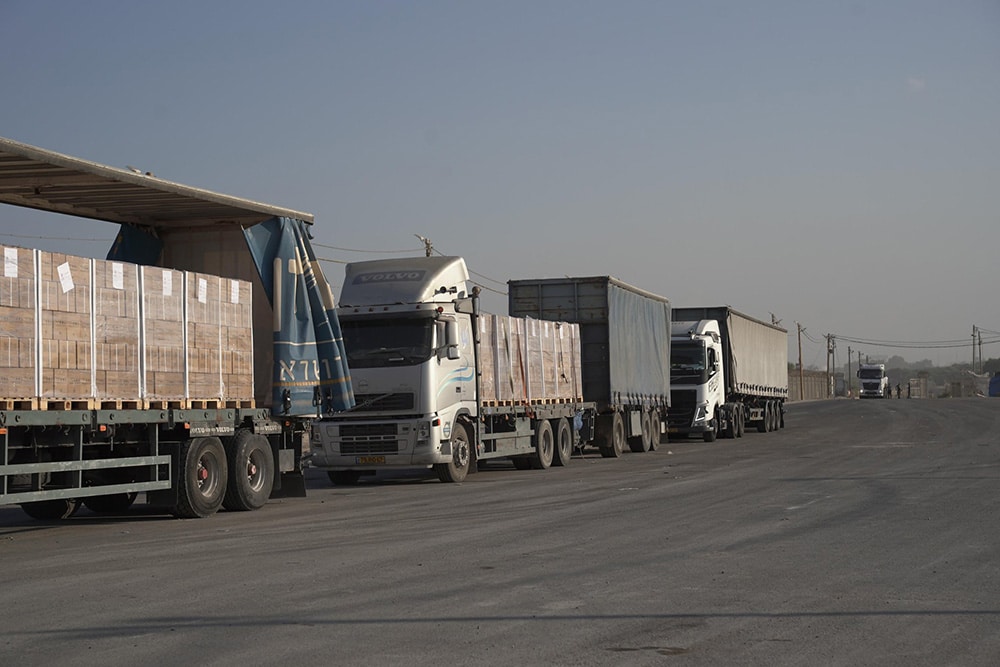
Domestic
- The Chief of Staff received updates on the establishment of a new Haredi brigade, “The Hasmoneans,” with recruitment set to begin in December at Camp Tevet, with plans for operational service by November 2025, as part of a broader effort to establish a full Haredi infantry brigade. If successful, the brigade is expected to contribute to counter-terror operations in Judea and Samaria, as well as defense along Israel’s eastern sector.
Defense Minister Yoav Gallant’s Dismissal
- On November 5th, US election day, Prime Minister Netanyahu dismissed Defense Minister Yoav Gallant, citing a lack of trust and disagreement on multiple issues. The dismissal followed Gallant’s approval of conscription orders for 7,000 ultra-Orthodox men and his opposition to the draft evasion law. Netanyahu said in a speech that he did not see eye to eye with Gallant on matters relating to the handling of the war. This came after tensions and disagreements consistently arose between the two since the start of the war. Gallant seemed to prioritize the US administration’s concerns over his own government’s war objectives placing himself as a contrarian and often subversive force in the cabinet.
- Foreign Minister, Israel Katz was named the new Defense Minister while MK Gideon Saar will replace Katz as the new Foreign Minister. Two Members of Saar’s party are expected to receive ministerial portfolios in the Foreign Affairs and Financial ministries.
- Gallant’s dismissal sparked protests in Jerusalem, Tel Aviv and other parts in Israel. The protests were not nearly as large as the night that Gallant was fired the first time in March 2023 over the Judicial Reform, which caused Netanyahu to backtrack and reinstate Gallant.
- Gallant spoke to the press after his dismissal about three issues: his opposition to the draft evasion law, which he called discriminatory and corrupt; his stance on securing the release of hostages; and his support for a national commission of inquiry into the October 7 attack.
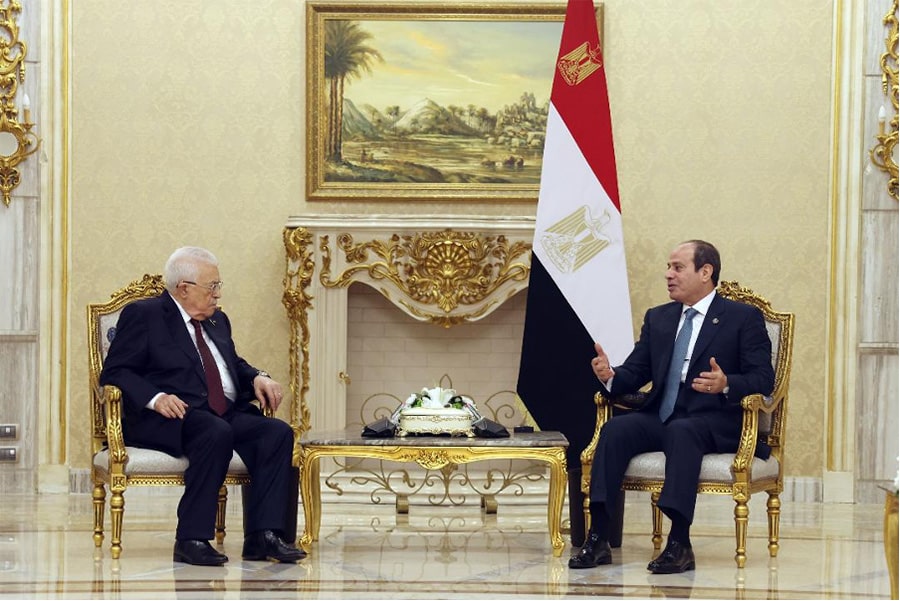
Leaked Document Case from PM’s Office
Attorney General Gali Baharav-Miara has authorized a comprehensive investigation into recent developments concerning the leak of sensitive military documents related to Hamas’ efforts to foil a hostage deal from Prime Minister Benjamin Netanyahu’s office This decision permits authorities to probe the Prime Minister’s Office and, if necessary, Netanyahu himself, after Eli Feldstein, a spokesperson in the Prime Minister’s Office, was identified as the main suspect in the investigation. He was arrested on October 27, 2024, on suspicion of leaking classified intelligence material.
Several other suspects, including IDF officers, have been arrested in connection with the case, bringing the total number of suspects to five.
The leaked documents reportedly included classified information from the IDF’s Intelligence Directorate. One such document was cited in a September 6, 2024, article by Germany’s Bild newspaper, which claimed that Hamas was prolonging hostage negotiations as a form of psychological warfare against Israel. The leaks are alleged to have damaged efforts to secure the release of hostages in Gaza, with critics suggesting that the timing and content of the leaks aligned with Netanyahu’s public statements against a potential hostage deal.
Netanyahu’s office has denied any involvement in the leaks, emphasizing that no official staff members have been arrested and condemning the ongoing obfuscation as a cover for deliberate and malicious slander against the Prime Minister’s Office.
Some reports that the leaked information is may have hindered efforts to negotiate the release of hostages held by Hamas. The exposure of classified intelligence may have compromised Israel’s negotiating position and provided Hamas with insights into Israel’s strategies. This claim has not been substantiated yet and no conclusive evidence were presented”
There are also suspicions concerning attempts to modify official protocols from the onset of the war, raising concerns about the integrity of governmental records and decision-making processes during critical periods.
Iraq and Syria
- The leader of the Iraqi militia, Harakat Hezbollah al-Nujaba, announced plans to attack U.S. bases in Syria and Iraq in retaliation for perceived Israeli violations of Iraqi airspace during strikes against Iran.
- The Nujaba militia published a threatening video against Israel with Hebrew subtitles under the title “Soon you will face our fighters in your settlements“. In the video, a militia fighter can be seen, wearing a ribbon with the inscription “Golan Liberation Brigade” on his head and getting ready to fight. In the background, an announcer is heard saying “Al-Qads (Jerusalem) is a symbol of our resistance, and the Golan is a symbol of our military forces stationed in Syria”, and at the end of the video a threat appeared to take over settlements in Israel.
This is a threat by a militia in Iraq to invade Israel and implement an attack similar to the October 7 attack. Also, implies of Shiite-Iraqi amspresence in Syria next to the border with Israel. - U.S. National Security Advisor Jake Sullivan warned Iraqi Prime Minister al-Sudani of potential Israeli retaliation should militias attack Israel. According to Axios, the Iranian Revolutionary Guards are reportedly supplying militias with drones and ballistic missiles in preparation for a potential Israeli attack.
- Combat engineering forces from the Bashan Division are building a new ground barrier along the Syrian border, featuring a trench, rock piles, and natural obstacles, aiming to slow down or halt any sudden attacks from the Syrian Golan and Bashan regions.
- The Israeli Air Force targeted Hezbollah’s weapon storage facilities near Qusayr, Syria, to prevent arms smuggling into Lebanon and disrupt Hezbollah’s logistical capabilities. The IDF issued a rare warning to the Syrian government not to allow its territory to be used for such purposes and threatened further attacks.
- The Shiite militia “Kata’ib Sarhat al-Quds” warned that an Israeli attack in Iraq would lead to an “unbounded escalation.”
- According to a report by the Saudi newspaper Elaph, Israel has warned Baghdad that if Iraqi militias continue their attacks, the Israeli Air Force could target up to 30 sites across Iraq.
- In July, under Division Bashan, the Egoz Unit and 504 Investigative Unit captured an Iranian collaborator in a Syrian village near the border. The individual, reportedly a Sunni, was passing information to Iran on IDF positions.

Iran
- Russia launched two Iranian satellites, enhancing Iran’s surveillance capabilities over Israel and American bases in the Middle East, indicating ongoing strategic cooperation between Russia and Iran.
- Iran has vowed to retaliate against Israel for recent airstrikes. U.S. Central Command has enhanced its presence in anticipation of this escalation. Iran may potentially target Israeli air force bases and intelligence sites in hopes of deterring a subsequent Israeli response.
- The Al-Udeid Air Base in Qatar received six B-52 bombers and additional support aircraft, enhancing U.S. Central Command’s defensive and offensive capabilities. Both Israel and the U.S. are prepared for potential action against Iran.
- According to Arab and Iranian officials, Iran plans a major offensive involving drones, ballistic and cruise missiles, targeting Israel. The Khormashahr-4 missile, with a 2,000 km range and a 1,500 kg warhead, could be deployed.
- The Iranian Foreign Ministry dismissed recent U.S. accusations regarding an alleged plot to assassinate political figures in the U.S. as a “Zionist conspiracy.” This response came after the U.S. Justice Department filed criminal charges related to an Iranian plan to target President-elect Donald Trump. According to a federal complaint in Manhattan, a Revolutionary Guard operative instructed a contact in September to surveil and ultimately kill Trump.
- After Donald Trump was elected as President of the United States, Iran included in its propaganda an to Trump supporters. Previously focused on supposedly humanitarian issues and the suffering in Gaza, Iran’s message now employs isolationist themes expounding on American funding of Israel and involvement in the region.
- Iranian Foreign Minister Abbas Araghchi has met with Sudan’s Minister of Finance and Economic Planning, Gibril Ibrahim Mohamed. Sudan has a long history of ties with Iran, sitting at a critical strategic point. This may be the sign of Iran trying to use Sudan to build its proxies with the collapse of Hamas and Hezbollah. Sudan’s instability may be used as a breeding ground for new terrorist groups.
Yemen
- Statement by Abdul Malik al-Houthi: The Houthi leader declared an increased commitment to maritime attacks and alliances with the resistance axis, following Trump’s re-election as US President.
- US and UK Airstrikes: The US and UK air forces conducted 119 airstrikes against Houthi targets in northern Yemen from January to October 2024, resulting in at least 45 Houthi casualties.
- The U.S. Special Envoy for Yemen Tim Lenderking expressed hope for Egypt, Saudi Arabia, and the UAE to participate more actively in countering the Houthis. These countries are currently reluctant, fearing backlash for appearing to support Israel and potential Iranian retaliation. However, a successful strike on Iranian capabilities could encourage them to join.
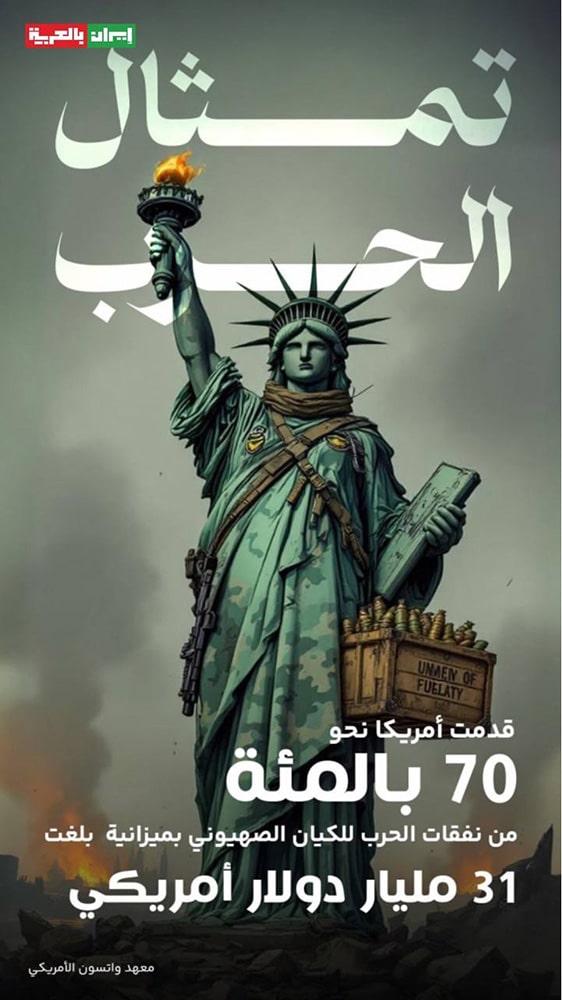
| Source: Source: Iran in Arabic on Telegram, https://t.me/Iran_Bel_Arabi
Fallen Soldiers
